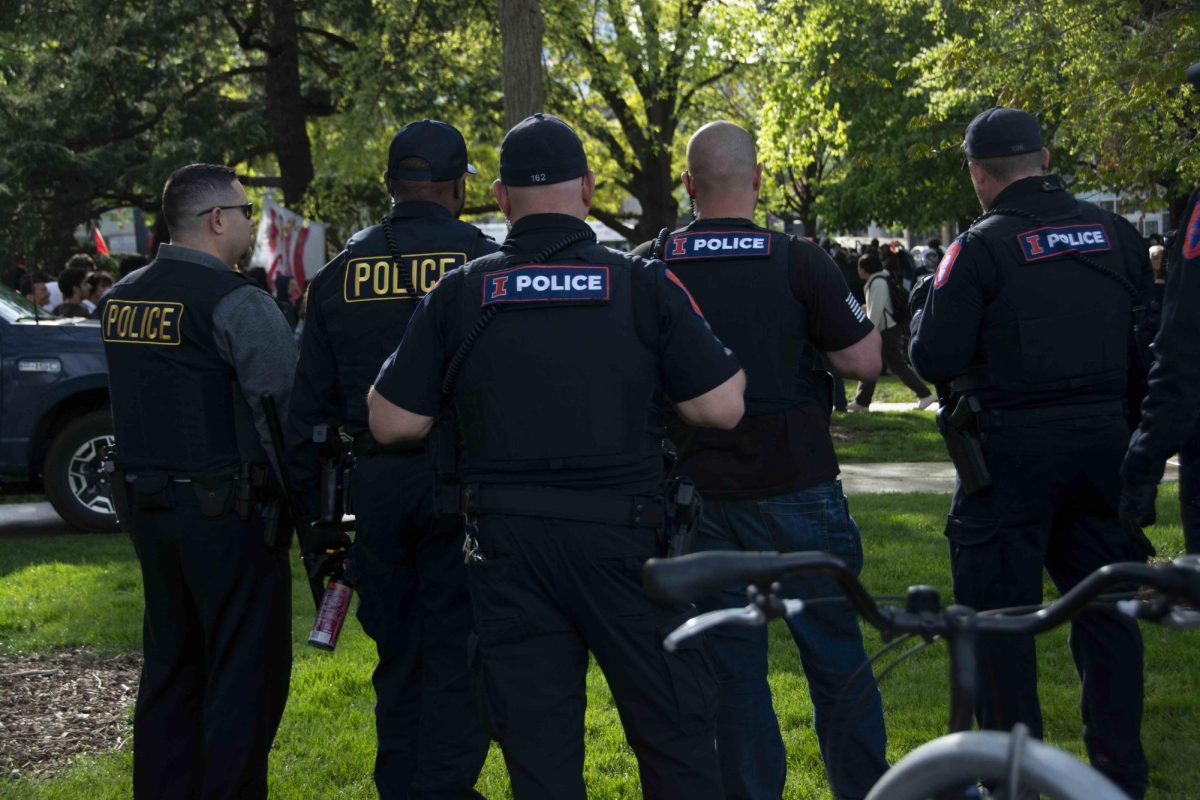The Urbana-Champaign Senate will wrap up its evaluation of the proposed administration changes Monday at its general meeting, but Joyce Tolliver, chair of the Senate Executive Committee, said discussion will continue beyond the formal evaluation.
The senate, which already submitted a statement rejecting the administrative changes in their current form, will decide whether to include a report from its statutes committee with other recommendations on the proposals to add a vice president for Health Affairs and change the titles of some administrators. The statutes committee’s report discusses the language of the proposals, specifically ambiguities within them.
“We certainly don’t want to just end the conversation here,” Tolliver said. “In many ways, our recommendation is on the same page of the (University of Illinois at) Chicago recommendation, which says that we really need more time.”
Tolliver said the Chicago campus senate requested that the Board of Trustees postpone the decision until March.
Chris Kennedy, board chair, said the trustees will discuss all the recommendations and the possibility of postponing the decision at its next meeting on Nov. 18.
Get The Daily Illini in your inbox!
“That’s really a group decision made by the trustees with the advice of the president, which will reflect the input from the faculty,” he said.
The Springfield campus senate also concluded its review Friday and forwarded suggestions to the University Senates Conference, which comprises elected members from each of the campus senates.
Tih-Fen Ting, chair of the Springfield Senate Executive Committee, said her senate accepted the proposals with a suggestion of changing the title of the vice president of Technology and Economic Development to vice president of Research, rather than adding “research” to the original title.
Ting said this will clarify that the position encompasses all research and not just research that has a direct effect on technology and economic development.
“We support the proposal, but at the same time we also urge the board to adequately respond to any intended consequences when it comes to implementations,” Ting said.
Ting emphasized the importance of adding “vice president” to the chancellor’s titles for clarity.
“It was made clear to us that the title realignment really does not fundamentally change the duties and responsibilities of the chancellors,” she said. “You really want to have this title … to really avoid any possible confusion.”
Ting pointed to both the University of California and University of Texas systems as examples where the chancellor is the chief executive officer of the system, not the president.
“We really do not think that this proposal actually will undermine the campuses’ independence,” Ting said. “What we really try to highlight is that we can actually also benefit more on the necessary coordination and cooperation at the same time.”
The senate approved a statement that was submitted to the University Senates Conference last week, which rejects the proposals in their current form. The statement cites unanswered questions and decreased independence of the individual campuses as reasons for the rejection.
University spokesman Tom Hardy said President Michael Hogan has been actively involved throughout the discussion of the proposals.
“Nearly all the questions or issues raised by the Urbana senate have been asked and addressed repeatedly over the last few months,” Hardy said in an e-mail interview. “Based on discussion and public comments, it appears support exists among the senates conference for major, key elements of the proposed administrative restructuring.”
Kennedy said the recommendations of the campus senates carry a lot of weight with the board.
“We have a co-governance structure, which we believe in,” Kennedy said. “As a board, we’ve tried to open up the lines of communication to the faculty and the students both formally and informally.”
Kennedy said with a new president, there is an “understandable fear” of diminished independence of the campuses. He added that the board believes the greatest threat to the University over the past few years has been an “overreaching” board and a weakened presidency.
“That is not what’s going on here,” he said. “It is not a power grab against the campuses at all. Really what we’re trying to do is insulate the campuses from anybody on the board or anybody who has influence on the board from interfering with campus activity.”
Tolliver, also a member of the University Senates Conference, said the conference will issue a statement to the Board of Trustees by the end of the week. It will try to consolidate the three campus senates’ recommendations into a singular statement. If it cannot, it will submit all three along with its own recommendation.




